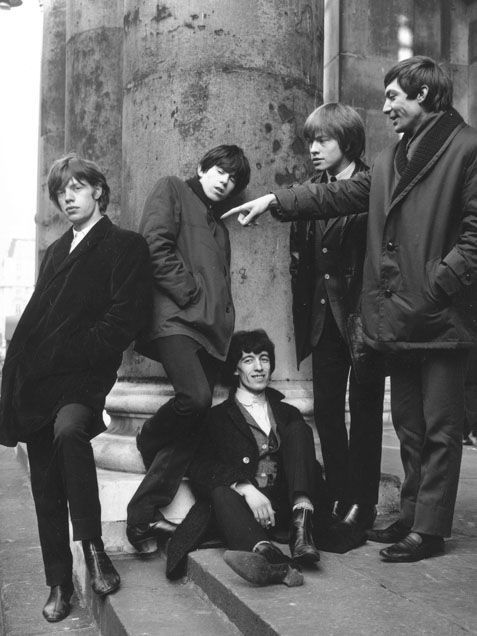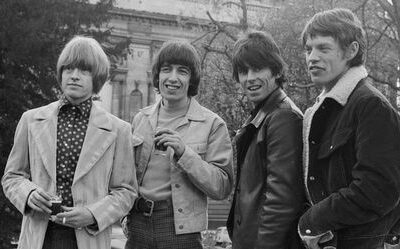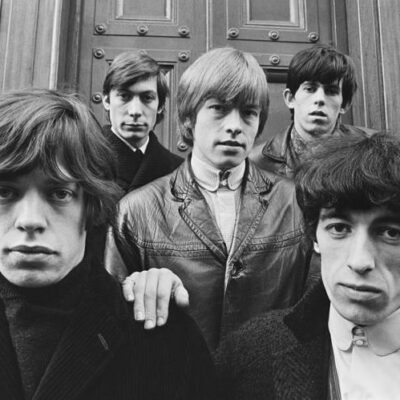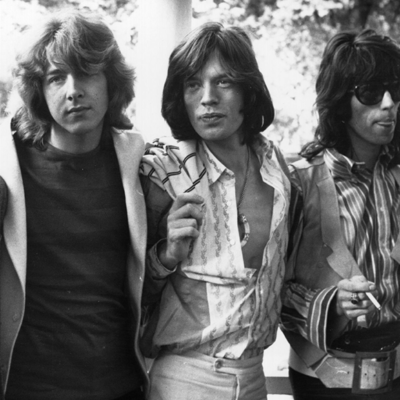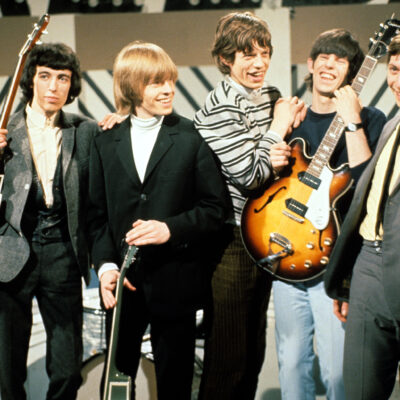THE ROLLING STONES
Rolling Stones
British rock group
Formed in 1962, that drew on Chicago blues stylings to create a unique vision of the dark side of post-1960s counterculture. The original members were Mick Jagger (b. July 26, 1943, Dartford, Kent, England), Keith Richards (b. December 18, 1943, Dartford), Brian Jones (b. February 28, 1942, Cheltenham, Gloucestershire, England—d. July 3, 1969, Hartfield, Sussex, England), Bill Wyman (b. October 24, 1936, London, England), and Charlie Watts (b. June 2, 1941, London—d. August 24, 2021, London). Later members were Mick Taylor (b. January 17, 1948, Hereford, East Hereford and Worcester, England), Ron Wood (b. June 1, 1947, London), and Darryl Jones (b. December 11, 1961, Chicago, Illinois, U.S.).
No rock band has sustained consistent activity and global popularity for so long a period as the Rolling Stones, still capable, more than 50 years after their formation, of filling the largest stadia in the world. Though several of their mid-1960s contemporaries—notably Bob Dylan, Paul McCartney, Eric Clapton, and Van Morrison—have maintained individual positions in rock’s front line, the Rolling Stones’ nucleus of singer Jagger, guitarist Richards, and drummer Watts remains rock’s most durable ongoing partnership.
In the process, the Stones have become rock’s definitive, emblematic band: a seamless blend of sound, look, and public image. It may be debatable whether they have actually, at any given moment, been the “greatest rock-and-roll band in the world,” as their time-honoured onstage introduction has claimed them to be; that they are the mold from which various generations of challengers—from the Who, Led Zeppelin, and Aerosmith via the New York Dolls, the Clash, and the Sex Pistols all the way to Guns N’ Roses and Oasis—have been struck is not. In their onstage personae, Jagger and Richards established the classic rock band archetypes: the preening, narcissistic singer and the haggard, obsessive guitarist.
Formed in London as an alliance between Jagger, Richards, and multi-instrumentalist Brian Jones along with Watts and bassist Wyman, the Stones began as a grubby conclave of students and bohemians playing a then esoteric music based on Chicago blues in pubs and clubs in and around West London. Their potential for mass-market success seemed negligible at first, but by 1965 they were second only to the Beatles in the collective affection of teenage Britain. However, whereas the Beatles of the mid-1960s had longish hair, wore matching suits, and appeared utterly charming, the Stones had considerably longer hair, all dressed differently, and seemed thoroughly intimidating. As the Beatles grew ever more respectable and reassuring, the Stones became correspondingly more rebellious and threatening. The Stones—specifically Jagger, Richards, and Jones—were subjected to intense police and press harassment for drug use and all-purpose degeneracy, whereas the Beatles, who were in private life no less fond of marijuana, sex, and alcohol, were welcomed at Buckingham Palace and made Members of the Order of the British Empire (MBE) by the queen.
The Jagger-Richards songwriting team created its first bona fide classic, “(I Can’t Get No) Satisfaction,” in 1965 and enjoyed a string of innovative hit singles well into 1966, including “Paint It Black,” “19th Nervous Breakdown,” “Get off My Cloud,” “Have You Seen Your Mother, Baby,” and “Lady Jane,” but the era of art-pop and psychedelia, which coincided with the Beatles’ creative peak, represented a corresponding trough for the Stones. The fashions of the era of whimsy and flower power did not suit their essentially dark and disruptive energies, and their psychedelic album Their Satanic Majesties Request (1967), with its accompanying single “We Love You,” was a comparatively feeble riposte to the Beatles’ all-conquering Sgt. Pepper’s Lonely Hearts Club Band and contributed little beyond its title to their legend. Furthermore, they were hampered by seemingly spending as much time in court and jail as they did in the studio or on tour. However, as the mood of the time darkened, the Stones hit a new stride in 1968 with the epochal single “Jumpin’ Jack Flash,” which reconnected them to their blues-rock roots, and the album Beggars Banquet. Replacing Jones with the virtuosic but self-effacing guitarist Mick Taylor, they returned to the road in 1969, almost instantly becoming rock’s premier touring attraction.
